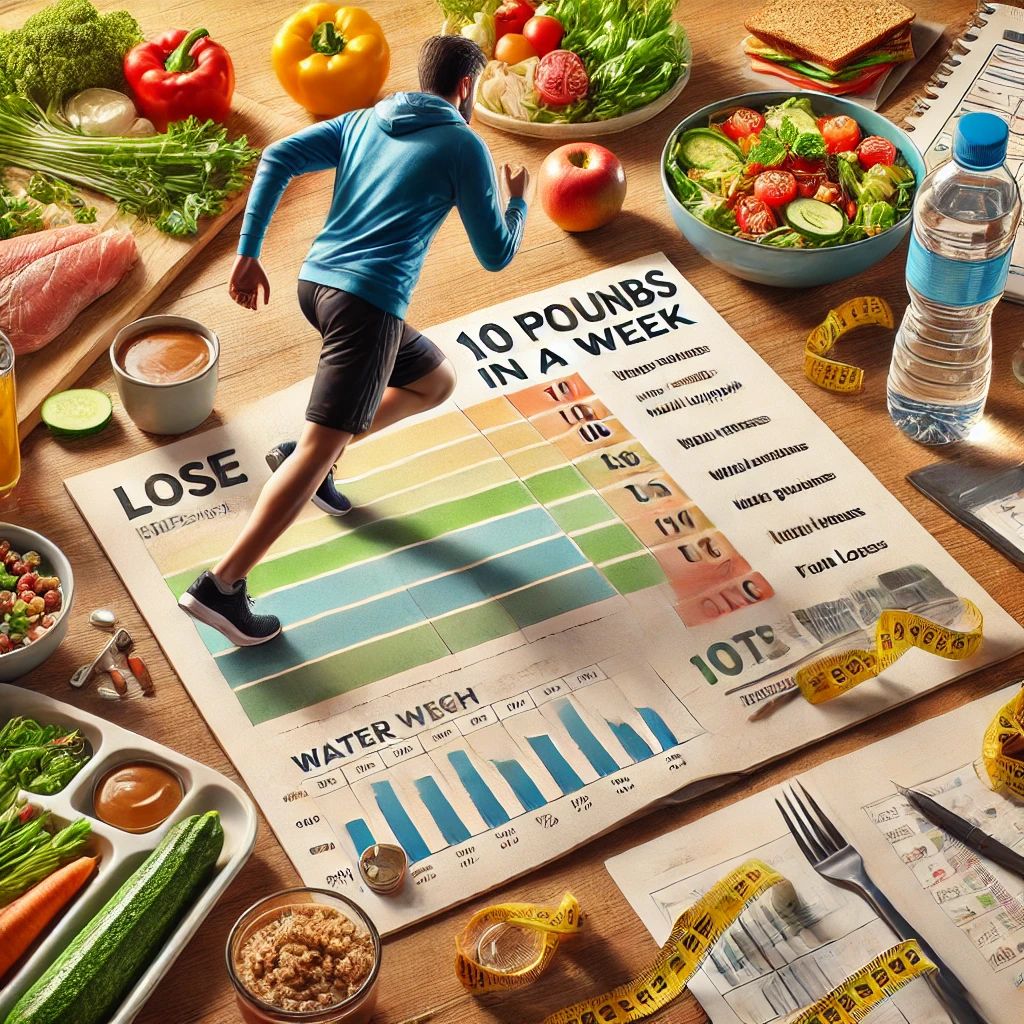
Can You Really Lose 10 Pounds in a Week?
Losing 10 pounds in just one week is an ambitious goal, and while it’s possible under certain conditions, it’s important to understand the difference between fat loss and water weight. Rapid weight loss methods may deliver short-term results, but they’re often unsustainable and can impact your health. Let’s explore how you can achieve significant results in a week while prioritizing your well-being.
1. Focus on a Calorie Deficit
Creating a calorie deficit is essential for weight loss:
Calculate your needs: Use a calorie calculator to determine how many calories you need to maintain your current weight.Aim for a safe deficit: Reduce your daily intake by 500–1,000 calories to lose 1–2 pounds of fat in a week.Prioritize nutrient density: Focus on foods that are low in calories but high in nutrients, like vegetables, lean proteins, and whole grains.2. Adopt a High-Protein, Low-Carb Diet
Changing your macronutrient intake can accelerate weight loss:
Increase protein: High-protein foods like chicken, fish, eggs, and tofu help preserve muscle mass and keep you full.Reduce carbs: Cutting back on refined carbs and sugars can lead to water weight loss and reduced bloating.Incorporate healthy fats: Include small amounts of healthy fats like avocado, nuts, and olive oil to stay satiated.3. Stay Hydrated and Avoid Liquid Calories
Water plays a vital role in weight loss:
Drink more water: Staying hydrated helps flush out toxins and reduces water retention.Avoid sugary drinks: Replace soda, juice, and energy drinks with water, herbal tea, or black coffee.Try intermittent fasting: Limit eating to an 8-hour window to reduce calorie intake and improve fat burning.4. Incorporate Intense Exercise
Combine cardio and strength training for maximum results:
High-intensity interval training (HIIT): Short bursts of intense exercise followed by rest can burn calories efficiently.Strength training: Build muscle to boost your metabolism and burn more calories at rest.Increase daily activity: Add more movement to your day by walking, taking stairs, or doing household chores.5. Cut Out Sodium and Processed Foods
Reducing salt and processed foods can minimize bloating:
Limit sodium: High-sodium foods cause water retention, making you feel heavier.Avoid processed snacks: Opt for whole foods instead of chips, packaged meals, or sugary treats.Eat fresh: Focus on meals made from scratch with fresh, whole ingredients.6. Prioritize Sleep and Stress Management
Rest and relaxation are key to weight loss:
Get enough sleep: Aim for 7–9 hours of sleep per night to support metabolism and reduce cravings.Manage stress: Practice yoga, meditation, or deep breathing to lower cortisol levels, which can contribute to weight gain.Avoid late-night eating: Stopping food intake a few hours before bed can reduce unnecessary calorie consumption.7. Understand the Limitations
While you may lose 10 pounds in a week, much of it could be water weight:
Fat loss takes time: Sustainable fat loss typically occurs at a rate of 1–2 pounds per week.Quick fixes are temporary: Rapid weight loss methods are often not sustainable and can lead to rebound weight gain.Health comes first: Focus on long-term habits that promote overall well-being rather than extreme short-term goals.Conclusion: Aim for Progress, Not Perfection
While it’s possible to lose 10 pounds in a week, focusing on sustainable weight loss practices is healthier and more effective in the long run. Create a calorie deficit, stay active, and prioritize your overall health to see lasting results. Remember, weight loss is a journey—take small, consistent steps, and you’ll reach your goals over time.
The article was prepared by Ira Levovich.



